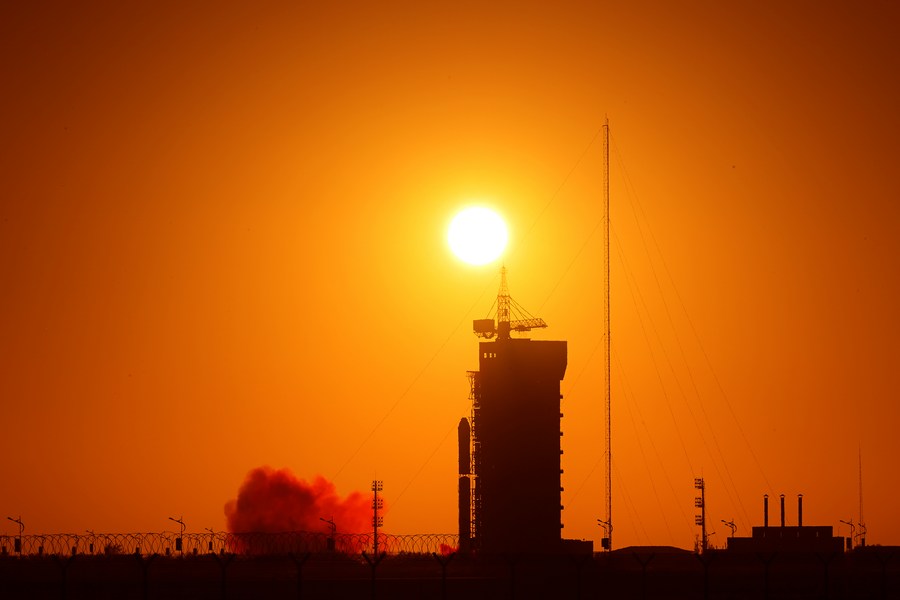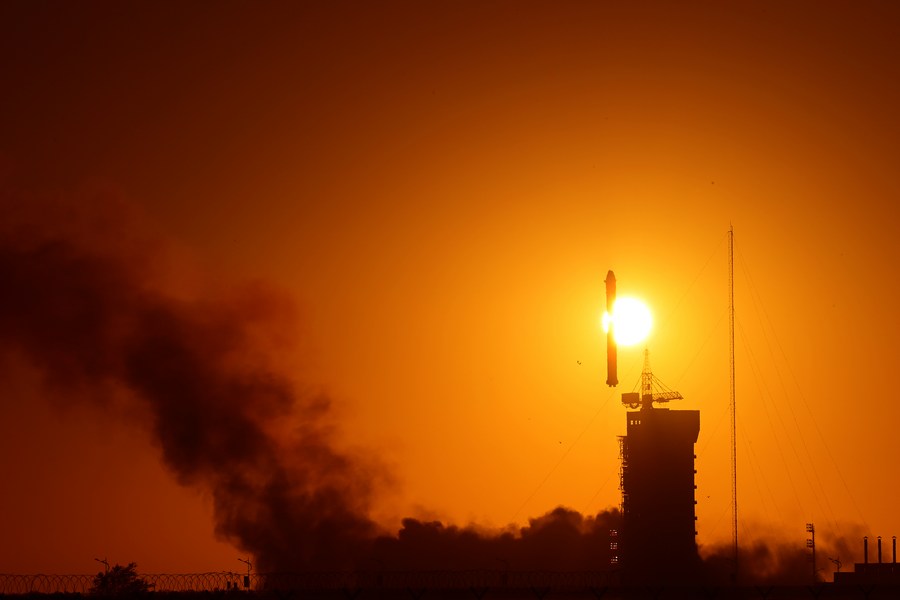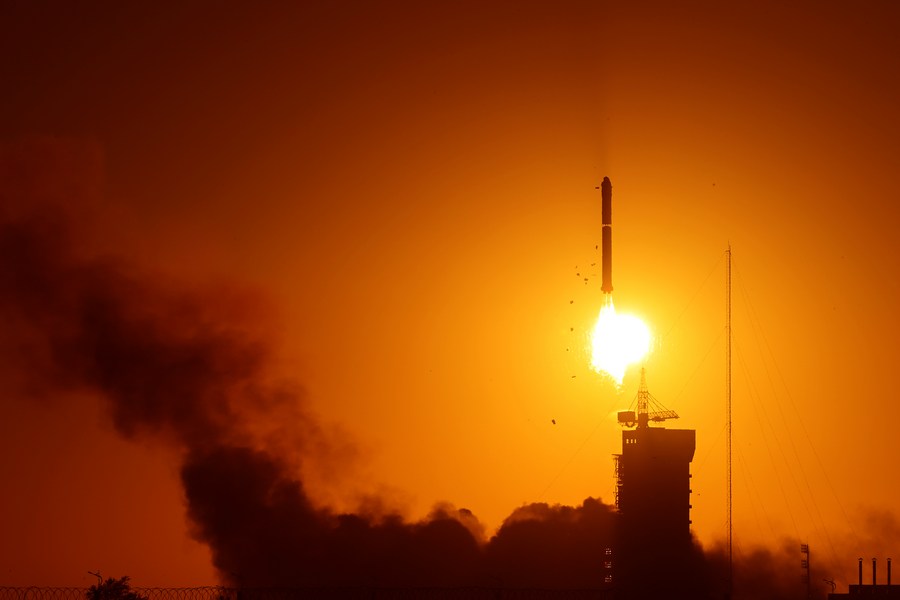

A Long March-2D carrier rocket carrying the Advanced Space-based Solar Observatory (ASO-S) blasts off from the Jiuquan Satellite Launch Center in northwest China, Oct. 9, 2022. (Photo by Wang Jiangbo/Xinhua)
JIUQUAN, Oct. 9 (Xinhua) -- China lifted off a solar exploration satellite into space from the Jiuquan Satellite Launch Center in northwest China on Sunday, furthering the country's scientific endeavor to unravel the secrets of the Sun.
The Advanced Space-based Solar Observatory (ASO-S) was launched aboard a Long March-2D rocket at 07:43 a.m. (Beijing Time) and entered its planned orbit successfully.

A Long March-2D carrier rocket carrying the Advanced Space-based Solar Observatory (ASO-S) blasts off from the Jiuquan Satellite Launch Center in northwest China, Oct. 9, 2022. (Photo by Wang Jiangbo/Xinhua)

A Long March-2D carrier rocket carrying the Advanced Space-based Solar Observatory (ASO-S) blasts off from the Jiuquan Satellite Launch Center in northwest China, Oct. 9, 2022. (Photo by Wang Jiangbo/Xinhua)

A Long March-2D carrier rocket carrying the Advanced Space-based Solar Observatory (ASO-S) blasts off from the Jiuquan Satellite Launch Center in northwest China, Oct. 9, 2022. (Photo by Wang Jiangbo/Xinhua)
今年1月,新冠疫情突然而至。为了防止疫情扩散,我国采取了史无前例的交通阻断及人流限制措施,这也为我国农业农村经济发展带来了巨大挑战。
